Discover The Morning Brief
The Morning Brief

The Morning Brief
Author: The Economic Times
Subscribed: 34,947Played: 354,988Subscribe
Share
© 2025 The Economic Times
Description
To make sense of the week’s hottest stories in business, economy, politics and markets, journalists from the Economic Times chat with reporters and industry leaders in this thrice-weekly (Tuesday, Thursday, Friday) podcast.
867 Episodes
Reverse
What does it take to build and scale a remote-first company across borders, regulations, and cultures? In this episode, host Himanshi Lohchab talks to Alex Bouaziz, co-founder and CEO of Deel, on how the company grew from a startup idea into a global HR and payroll platform operating in over 150 countries. Bouaziz reflects on early pivots, lessons from Y Combinator, and the idea of founder–product fit that continues to shape Deel’s culture and strategy. The conversation explores Deel’s expanding product suite, investments in payroll infrastructure, its approach to compliance, and how capital has been deployed through acquisitions and innovation. The episode also examines broader shifts in global hiring, cross-border talent movement, and India’s increasing role in Deel’s long-term plans offering a clear-eyed view of how companies manage scale and complexity in a rapidly changing world. Tune in.You can follow Himanshi Lohchab on her social media: X and Linkedin Check out other interesting episodes of ET in the Valley: ET in the Valley: Grant Lee, Co-Founder & CEO of Gamma, ET in the Valley: Databricks Co-founder Patrick Wendell, ET in the Valley: Replit Founder and CEO Amjad Masad, ET in the Valley: ElevenLabs Co-Founder Mati Staniszewski and much more. Catch the latest episode of ‘The Morning Brief’ on The Economic Times Online, Spotify, Apple Podcasts, JioSaavn, Amazon Music and Youtube.See omnystudio.com/listener for privacy information.
India’s nuclear energy framework is set for its most consequential reset in decades with the passage of the Shanti Bill. In this episode, host Anirban Chowdhury speaks to ET’s executive editor, politics Pranab Dhal Samanta and Anubhuti Vishnoi to unpack what the new law changes and why it matters now. The discussion traces India’s long nuclear journey: from staying outside the Non-Proliferation Treaty and building indigenous capabilities, to gaining global legitimacy after the Indo-US nuclear deal. Yet, despite access to international fuel and technology, expansion remained sluggish, constrained by strict liability norms and a tightly controlled, state-led model. The Shanti Bill seeks to change that. It consolidates existing laws into a single framework, removes supplier liability, aligns compensation rules with global conventions, and introduces graded liability caps. Crucially, it opens the door to private participation, separates regulatory and operational roles, and clarifies responsibilities across the nuclear fuel cycle while keeping strategic control with the state. As nuclear power is expected to play a larger role in India’s long-term energy mix, this episode explains how the new framework could reshape the future of civilian nuclear power in the country. You can follow Anirban Chowdhury on his social media: X and LinkedinCheck out other interesting episodes from the host likeBattle Beyond Borders, Peace Perished: Explaining the Pahalgam Terror Attack, Corner Office Conversation with Sridhar Vembu, CEO, of Zoho Corporation, Rebel Foods’ chief on Building Brands, Tech, and an IPO on the Horizon and much more.Catch the latest episode of ‘The Morning Brief’ on The Economic Times Online, Spotify, Apple Podcasts, JioSaavn, Amazon Music and Youtube.Credits: Films Division, Indian National Congress, DNAIndiaNews, AP Archive, MintSee omnystudio.com/listener for privacy information.
As the global pharmaceutical industry enters a period of profound transition, this episode of Corner Office Conversation examines what lies ahead. Hosts Vikas Dandekar and Teena Thacker talk to Stefan Oelrich, Head of the Pharmaceuticals Division at Bayer AG, about the forces reshaping drug discovery and access from trade tensions and shifting innovation hubs to the promise and uncertainty of cell and gene therapies. Oelrich reflects on Europe’s struggle to stay competitive as capital and talent flow increasingly toward the US and China, and argues that meaningful reform will require faster regulation, leaner bureaucracy, and quicker patient access. He also addresses the looming loss of exclusivity for blockbuster drugs and outlines how Bayer plans to offset revenue impact with a packed pipeline of new launches. India emerges as both an opportunity and a test case, offering scale and growth while raising tough questions on affordability and access. At its core, the conversation asks whether breakthrough science can move fast enough to serve patients without losing public trust.You can follow Vikas Dandekar on his social media: X and Linkedin and read his Newspaper Articles.You can follow Teena Thacker on his social media: X and Linkedin and read her Newspaper Articles.Listen to Corner Office Conversation: Corner Office Conversation with Knight Frank’s William Beardmore-Gray and Shishir Baijal, Corner Office Conversation with Sridhar Vembu, CEO, of Zoho Corporation, Corner Office Conversation with Gunjan Soni, Country Managing Director, Youtube India, Corner Office Conversation with Elizabeth Reid, Head of Search, Google and much more. Catch the latest episode of “Corner Office Conversation” on: Spotify, Amazon Music, Apple Podcasts,and wherever you get your podcasts from.See omnystudio.com/listener for privacy information.
Why do small businesses still wait months to be paid, even when the law says 45 days? In this episode of The Morning Brief, we examine one of the most persistent stress points in India’s MSME ecosystem: delayed payments. Host Anirban Chowdhury speaks with Basant Kaur, Country Head of C2FO and Ramesh Dharmaji Senior advisor of the Global Alliance of Mass Entrepreneurship (GAME) to unpack why payment backlogs—running into over 7.3 lakh crore rupees—continue despite legal mandates. The conversation moves from banking credit flows and risk appetite to the promise and pitfalls of platforms like TReDS, and why buyer participation remains the missing link. The episode also explores whether regulation alone is enough, or if behavioural change, digital infrastructure, and faster dispute resolution are equally critical. As MSMEs power jobs, exports, and growth, the discussion raises a timely question: can India fix its payment bottleneck before it chokes the very enterprises driving its economy?Tune inYou can follow Anirban Chowdhury on his social media: X and LinkedinCheck out other interesting episodes from the host likeBattle Beyond BordersPeace Perished: Explaining the Pahalgam Terror AttackCorner Office Conversation with Sridhar Vembu, CEO, of Zoho CorporationRebel Foods’ chief on Building Brands, Tech, and an IPO on the HorizonBooking’s APAC Chief on Travel Trends, AI, and LoyaltyReliance’s AI PlaybookText-to-Theater? How AI is Rewriting Cinema Part 1How AI is Rewriting Cinema Part 2 Catch the latest episode of ‘The Morning Brief’ on The Economic Times Online, Spotify, Apple Podcasts, JioSaavn, Amazon Music and Youtube.See omnystudio.com/listener for privacy information.
From no age gating on sexual content to the absence of statutory warnings around smoking on screen, Microdrama apps are violating critical rules associated with publishing curated digital content. In this episode, host Dia Rekhi speaks with Mallika Noorani of Parinam Law Associates on how platforms dismissed as “just two-minute videos” are in fact operating outside the law, despite clearly falling under India’s Intermediary Guidelines and Digital Media Ethics Code. The discussion lays bare systemic failures: missing content ratings, weak or misleading age gates, absent parental controls, poor accessibility features, and routine neglect of mandatory health disclaimers. Noorani explains why neither format nor duration offers legal cover, how microdrama platforms qualify as publishers of online curated content, and what due diligence truly requires. The episode also probes broken grievance redress systems and opaque subscription practices that leave users exposed, with little protection or recourse.You can follow Dia Rekhi on social media: Linkedin & XCheck out other interesting episodes from the host like ET in the Valley: Grant Lee, Co-Founder & CEO of Gamma, ET in the Valley: Databricks Co-founder Patrick Wendell, ET in the Valley: Replit Founder and CEO Amjad Masad, ET in the Valley: ElevenLabs Co-Founder Mati Staniszewski and much more. Catch the latest episode of ‘The Morning Brief’ on The Economic Times Online, Spotify, Apple Podcasts, JioSaavn, Amazon Music and Youtube.See omnystudio.com/listener for privacy information.
From big data’s earliest breakthroughs to AI-driven software automation, Ashish Thusoo has been at the centre of enterprise technology’s biggest inflection points. In this episode of ET in the Valley, host Surabhi Agarwal speaks with Ashish Thusoo, co-founder and CEO of CurieTech AI. About how data, software, and enterprise IT are being reshaped once again. Tracing his journey from Oracle in 1998 to redefining data processing at Facebook, and later building cloud-scale platforms, the conversation unpacks why AI-led automation of integrations is emerging as the next frontier. Thusoo also weighs in on whether the AI wave spells disruption or opportunity for Indian IT firms, the froth around valuations and circular deals, the uncertainty over H1B visas, and what makes technology companies endure in Silicon Valley. Listen in You can follow Surabhi Agarwal on her Linkedin, X profiles and read her Newspaper Articles. Check out other interesting episodes of ET in the Valley: ET in the Valley: Grant Lee, Co-Founder & CEO of Gamma, ET in the Valley: Databricks Co-founder Patrick Wendell, ET in the Valley: Replit Founder and CEO Amjad Masad, ET in the Valley: ElevenLabs Co-Founder Mati Staniszewski and much more. Catch the latest episode of ‘The Morning Brief’ on The Economic Times Online, Spotify, Apple Podcasts, JioSaavn, Amazon Music and Youtube.See omnystudio.com/listener for privacy information.
India’s economy appears strong on the surface: high growth, low inflation, rising global interest and a confident narrative around the “India decade.” But is the optimism masking deeper structural risks? In this wide-ranging roundtable, leading voices from business, policy and economics examine what is really driving India’s growth and what could hold it back. In the latest edition of The Economic Times CEO roundtable ET’s Executive Editor Sruthijith KK talks to Priya Nair, CEO & MD, Hindustan Unilever, Uday Kotak, founder, Kotak Mahindra Bank, Sunil Bharti Mittal, Chairman, Bharti Enterprises, Sajjan Jindal, Chairman, JSW Group, Lalit Keshre, Co-founder & CEO, Groww, Abhishek Manu Singhvi, Senior Lawyer, Debasish Mishra, Chief Growth Officer, Deloitte South Asia as they explores rising rural incomes, consumption shifts, entrepreneurship beyond metros and the promise of digital public infrastructure, while also confronting persistent challenges: weak private capex, underinvestment in R&D, judicial delays, export competitiveness and concentration risks across key sectors. Listen in You can follow Sruthijith K.K. on his social media: X and LinkedinCheck out other interesting episodes from the host like ET in the Valley: Grant Lee, Co-Founder & CEO of Gamma, ET in the Valley: Databricks Co-founder Patrick Wendell, ET in the Valley: Replit Founder and CEO Amjad Masad, ET in the Valley: ElevenLabs Co-Founder Mati Staniszewski and much more. Catch the latest episode of ‘The Morning Brief’ on The Economic Times Online, Spotify, Apple Podcasts, JioSaavn, Amazon Music and Youtube.See omnystudio.com/listener for privacy information.
India’s quick-commerce boom is masking a growing public-health crisis. A new analysis reveals that half of all packaged foods sold on these platforms are junk, HFSS or ultra-processed, with some apps listing unhealthy items at rates as high as 62 percent. What looks like convenience is reshaping consumer behaviour, especially among Gen Z, where late-night impulsive ordering has become routine and, in many households, a daily habit. At the same time, medical research links ultra-processed foods to a wide range of diseases including obesity, diabetes, hypertension, cardiovascular problems, kidney disorders and even depression raising alarms about long-term dietary patterns. In this episode host Anirban Chowdhury talks to Sachin Taparia founder of Local Circles and public health and nutrition expert Dr. Arun Gupta, convenor of Nutrition Advocacy in Public Interest (NAPi). Despite this, India still lacks strong front-of-pack warning labels, stalled for years by industry pushback and regulatory delays. With digital storefronts acting as unregulated corner stores and offering almost no nutritional guardrails, this episode examines how an everyday swipe has quietly turned into a nationwide dietary risk and what it will take to reverse the trend. Tune in.You can follow Anirban Chowdhury on his social media: X and LinkedinCheck out other interesting episodes from the host like ET in the Valley: Grant Lee, Co-Founder & CEO of Gamma, ET in the Valley: Databricks Co-founder Patrick Wendell, ET in the Valley: Replit Founder and CEO Amjad Masad, ET in the Valley: ElevenLabs Co-Founder Mati Staniszewski and much more. Catch the latest episode of ‘The Morning Brief’ on The Economic Times Online, Spotify, Apple Podcasts, JioSaavn, Amazon Music and Youtube.See omnystudio.com/listener for privacy information.
Google and Accel have teamed up to launch their first-ever AI Cohort in India, a pre-seed program designed to back the country’s most ambitious AI founders at a moment when global giants like Microsoft are announcing multibillion-dollar AI investments in India. In this episode, host Anirban Chowdhury talks to Jonathan Silber, Co-Founder & Director of AI Futures Fund, Google, and Accel partners Prayank Swaroop and Pratik Agarwal to unpack why India was chosen as the global starting point, what the program offers, and how it aims to shape the next wave of AI innovation. From early access to cutting-edge Google DeepMind models to hands-on mentorship from engineers, researchers and venture partners, the guests explain how the cohort is built to give Indian startups a genuine global advantage. They discuss the surge in AI adoption across India, the challenges founders face in scaling internationally, and why both organisations believe India is ready to produce category-leading AI companies for the world. Tune in.You can follow Anirban Chowdhury on his social media: X and LinkedinCheck out other interesting episodes from the host like ET in the Valley: Grant Lee, Co-Founder & CEO of Gamma, ET in the Valley: Databricks Co-founder Patrick Wendell, ET in the Valley: Replit Founder and CEO Amjad Masad, ET in the Valley: ElevenLabs Co-Founder Mati Staniszewski and much more. Catch the latest episode of ‘The Morning Brief’ on The Economic Times Online, Spotify, Apple Podcasts, JioSaavn, Amazon Music and Youtube.See omnystudio.com/listener for privacy information.
Fireflies started as a small experiment by two young engineers trying to fix a simple workplace problem: remembering what was said in meetings. A decade later, it has quietly become one of the few profitable AI companies operating at global scale. In this episode, of ET in the Valley, host Himanshi Lohchab talks to Co-founder & CEO at Fireflies.ai, Krish Ramineni traces that path from manually joining calls as “Fred” to validate demand, to rebuilding the product after securing early access to OpenAI’s APIs. He discusses the pressure of fast followers, why note-taking was only the entry point, and how Fireflies is now expanding into sector-specific workflows across healthcare, finance and retail. Krish also explains why the company resisted the fundraising race, how it approached M&A interest, and why he believes the next phase of AI will involve “AI employees” handling routine work across tools. It’s a grounded conversation about discipline, timing and what real adoption looks like in an overheated AI market.Tune in.You can follow Himanshi Lohchab on her social media: X and Linkedin Check out other interesting episodes of ET in the Valley: ET in the Valley: Grant Lee, Co-Founder & CEO of Gamma, ET in the Valley: Databricks Co-founder Patrick Wendell, ET in the Valley: Replit Founder and CEO Amjad Masad, ET in the Valley: ElevenLabs Co-Founder Mati Staniszewski and much more. Catch the latest episode of ‘The Morning Brief’ on The Economic Times Online, Spotify, Apple Podcasts, JioSaavn, Amazon Music and Youtube.See omnystudio.com/listener for privacy information.
India’s biggest airline didn’t just stumble, it unravelled. When IndiGo collapsed, thousands were stranded, but the real story runs much deeper. Aviation insiders unpack how ignored fatigue rules, poor planning, and a culture of silence pushed India’s largest carrier into chaos. In this episode, Host Anirban Chowdhury speaks to Capt. Amit Singh of Safety Matters, Ameya Joshi of Network Thoughts, and ET’s Arindam Majumdar to decode how IndiGo’s days-long meltdown exposed deep cracks in pilot planning, safety oversight, and the regulatory system meant to keep flyers safe. Experts explain why new fatigue rules triggered panic, how a shortage of captains spiralled into mass cancellations, and whether the crisis was mismanaged or engineered. A revealing look at monopolistic power, weak checks, and what happens when a dominant airline pushes the limits.You can follow Anirban Chowdhury on his social media: X and LinkedinCheck out other interesting episodes from the host like ET in the Valley: Grant Lee, Co-Founder & CEO of Gamma, ET in the Valley: Databricks Co-founder Patrick Wendell, ET in the Valley: Replit Founder and CEO Amjad Masad, ET in the Valley: ElevenLabs Co-Founder Mati Staniszewski and much more. Catch the latest episode of ‘The Morning Brief’ on The Economic Times Online, Spotify, Apple Podcasts, JioSaavn, Amazon Music and Youtube. Credits: NDTV, News9Live, CNNNews 18See omnystudio.com/listener for privacy information.
Bourbon is having a moment and Sazerac wants India to be its next big frontier. In this episode, of the Corner Office Conversation ET’s Ratna Bhushan talks to Diego Bianchi, VP,Global Hubs at Sazerac, who takes us inside Kentucky’s historic Buffalo Trace Distillery to understand how the 200-year-old American spirits giant plans to grow in a market long ruled by Scotch. Bianchi breaks down the company’s India strategy: educating new drinkers, betting on cocktail culture, expanding distribution, and building brand stories that resonate with a young, curious consumer base. He also weighs in on tariff cuts, pricing pressures, regulatory challenges, and why India is now one of Sazerac’s most important growth markets. Can bourbon move from the fringes to the mainstream in India? This conversation explores the stakes and the storytelling behind that push.Tune In.You can follow Ratna Bhushan on her Linkedin, Twitter profiles and read her Newspaper Articles. Listen to Corner Office Conversation: Corner Office Conversation with Knight Frank’s William Beardmore-Gray and Shishir Baijal, Corner Office Conversation with Sridhar Vembu, CEO, of Zoho Corporation, Corner Office Conversation with Gunjan Soni, Country Managing Director, Youtube India, Corner Office Conversation with Elizabeth Reid, Head of Search, Google and much more. Catch the latest episode of “Corner Office Conversation” on: Spotify, Amazon Music, Apple Podcasts,and wherever you get your podcasts from.See omnystudio.com/listener for privacy information.
India wants manufacturing to power its next big leap from 17% to 24% of GDP, and eventually to a $30 trillion economy. But how realistic is that in a world of tariffs, fractured supply chains and geopolitical churn? In this episode, host Anirban Chowdhury talks to Rahul Jain, India head at the Boston Consulting Group, who breaks down what it will actually take. He explains why India’s large domestic market is an advantage, why indigenisation and exports must rise together, and why scale, cost competitiveness and real R&D investment will decide whether India becomes a global manufacturing force, why three-quarters of cost-cutting programmes fail, how resilience has become a core business metric, and why CEOs need to get comfortable making decisions in uncertainty rather than waiting for stability. As global alliances shift and AI reshapes business, he argues that India’s demographics, STEM talent and political stability give it a rare opening if industry and government can move with speed and discipline. Listen in:You can follow Anirban Chowdhury on his social media: X and LinkedinCheck out other interesting episodes from the host like ET in the Valley: Grant Lee, Co-Founder & CEO of Gamma, ET in the Valley: Databricks Co-founder Patrick Wendell, ET in the Valley: Replit Founder and CEO Amjad Masad, ET in the Valley: ElevenLabs Co-Founder Mati Staniszewski and much more. Catch the latest episode of ‘The Morning Brief’ on The Economic Times Online, Spotify, Apple Podcasts, JioSaavn, Amazon Music and Youtube.See omnystudio.com/listener for privacy information.
India's government ordered every smartphone to pre-install its Sanchaar Saathi cybersecurity app then quietly withdrew the mandate within weeks after Apple and privacy experts cried foul. But the real story isn't the U-turn. It's what this episode exposes: India's surveillance laws are 30 years old, written for phone tapping, not the digital age. The government can access your personal data without consent, without oversight, without accountability. While the app mandate failed because Apple had power to push back, most Indians don't. This episode unpacks the regulatory overreach, the privacy concerns, and why outdated laws give authorities a blank check over your digital life.You can follow Anirban Chowdhury on his social media: X and LinkedinCheck out other interesting episodes from the host like ET in the Valley: Grant Lee, Co-Founder & CEO of Gamma, ET in the Valley: Databricks Co-founder Patrick Wendell, ET in the Valley: Replit Founder and CEO Amjad Masad, ET in the Valley: ElevenLabs Co-Founder Mati Staniszewski and much more. Catch the latest episode of ‘The Morning Brief’ on The Economic Times Online, Spotify, Apple Podcasts, JioSaavn, Amazon Music and Youtube.Credits: NEWS9 live, CNBC-TV18See omnystudio.com/listener for privacy information.
This episode of “The Morning Brief” ET in the Valley series we go inside the mind of one of Silicon Valley’s most quietly influential founders a technologist who reshaped modern data centers with a single insight: keep compute and storage together because the network will always slow you down. Host Surabhi Agarwal talks to Mohit Aron, co-founder, Nutanix and founder, Cohesity about the idea that grew into hyperconverged infrastructure and why, even in an age of cloud and AI, the basic physics of data still haven’t changed. We also dive into the forgotten world of secondary data backups, archives, test systems and how cleaning up that chaos unlocked new possibilities, from ransomware detection to AI-driven analytics. Now working on his third startup, he explains why sales tech remains so broken and why fixing it felt urgent. Beyond the products and companies, the conversation widens to the Valley’s overheated AI moment, circular funding loops, and the stark contrast with India’s still-nascent deep-tech ecosystem. He also opens up about immigration, accountability, and why aligning personal incentives with national goals may be the only real way to drive long-term change. Tune in.You can follow Surabhi Agarwal on her Linkedin, X profiles and read her Newspaper Articles. Check out other interesting episodes from the host like ET in the Valley: Grant Lee, Co-Founder & CEO of Gamma, ET in the Valley: Databricks Co-founder Patrick Wendell, ET in the Valley: Replit Founder and CEO Amjad Masad, ET in the Valley: ElevenLabs Co-Founder Mati Staniszewski and much more.Catch the latest episode of ‘The Morning Brief’ on The Economic Times Online, Spotify, Apple Podcasts, JioSaavn, Amazon Music and Youtube.See omnystudio.com/listener for privacy information.
A zero-commission bet that rewired India’s e-commerce playbook. In this episode of The Morning Brief, host Samidha Sharma and ET’s Pranav Mukul break down Meesho’s unconventional rise with CEO Vidit Aatrey from leveraging WhatsApp resellers and an asset-light model to becoming a category-shaping marketplace challenging Amazon and Flipkart without owning warehouses. With 50% order growth, positive cash flows, and plans to go public, Meesho now eyes AI-led personalisation, financial services, and deeper entry into affordable categories. But as return rates climb, margins thin, and investor scrutiny sharpens, a bigger question looms: can Meesho scale sustainably while staying true to its low-cost DNA? Tune in.You can follow Samidha Sharma on her Linkedin, X profiles and read her Newspaper Articles. You can follow Pranav Mukul on her Linkedin, X profiles and read her Newspaper Articles. Check out other interesting episodes from the host like Battle Beyond Borders, Peace Perished: Explaining the Pahalgam Terror Attack, Corner Office Conversation with Sridhar Vembu, CEO, of Zoho Corporation, Rebel Foods’ chief on Building Brands, Tech, and an IPO on the Horizon and much more.Catch the latest episode of ‘The Morning Brief’ on The Economic Times Online, Spotify, Apple Podcasts, JioSaavn, Amazon Music and Youtube.See omnystudio.com/listener for privacy information.
How will the rise of the agentic enterprise redefine the future of work, technology and scale for Indian businesses? Host Anirban Chowdhury speaks with Arun Kumar Parameswaran, Executive Vice President and MD of Salesforce, South Asia, about the shift from traditional digital transformation to a new era where autonomous AI agents collaborate with humans to reshape how organisations operate. From hyper-personalised experiences delivered at massive scale to AI-led credit decisions, fraud detection and instant commerce builds, the conversation explores how this model is set to transform speed, efficiency and global reach. It also examines why trust, auditability and the right balance between humans and AI will determine which companies truly capture the potential of this next technological wave. Tune in.Listen to Corner Office Conversation: Corner Office Conversation with Knight Frank’s William Beardmore-Gray and Shishir Baijal, Corner Office Conversation with Sridhar Vembu, CEO, of Zoho Corporation, Corner Office Conversation with Gunjan Soni, Country Managing Director, Youtube India, Corner Office Conversation with Elizabeth Reid, Head of Search, Google and much more.Catch the latest episode of ‘The Morning Brief’ on The Economic Times Online, Spotify, Apple Podcasts, JioSaavn, Amazon Music and Youtube.See omnystudio.com/listener for privacy information.
India's biggest overhaul of labour laws has officially taken shape, reshaping how millions of workers and thousands of businesses will operate. In this episode, host Anirban Chowdhury, ET’s national editor, economics, Deepshikha Sikarwar and Yogima Seth Sharma talk to labour secretary Vandana Gurnani, Poorvi Chothani, founder and MD of LawQuest and Anjali Sardana, founder of Pronto about what the shift from 29 separate laws to four unified labour codes really means from a stricter, clearer wage definition to the long-awaited recognition of gig and platform workers. We explore how the new 50% basic pay rule could alter take-home salaries, why fixed-term employees now stand on par with permanent staff, and how the raised retrenchment threshold aims to balance flexibility with worker safeguards.The conversation also examines the realities of state-level implementation, potential compliance challenges for companies with distributed teams, and the government’s push toward faceless, tech-enabled filings. Whether you’re an employer preparing for transition or a worker trying to understand your rights, this episode offers a sharp, practical guide to India’s new labour landscape.Listen in: You can follow Anirban Chowdhury on his social media: X and LinkedinCheck out other interesting episodes from the host likeBattle Beyond Borders, Peace Perished: Explaining the Pahalgam Terror Attack, Corner Office Conversation with Sridhar Vembu, CEO, of Zoho Corporation, Rebel Foods’ chief on Building Brands, Tech, and an IPO on the Horizon and much more. Catch the latest episode of ‘The Morning Brief’ on The Economic Times Online, Spotify, Apple Podcasts, JioSaavn, Amazon Music and Youtube.See omnystudio.com/listener for privacy information.
Is India’s stock market truly overheating, or is this simply the new normal? From stretched small- and mid-cap valuations to the frenzy in consumption, manufacturing, defence and a flood of IPOs, this episode unpacks the signals and the noise. Host and ET’s markets editor Nishanth Vasudevan talks to veteran fund manager Prashant Jain, co-founder and CIO of 3P Investment Managers, who argues that today’s markets are still far from the euphoric highs of 1992, 2000 and 2007. Jain also weighs in on the global AI bubble, India’s market resilience, and why he believes large caps could be the most sensible bet in the years ahead whether you’re a new post-COVID investor or a seasoned market participant.Tune in: You can follow our host Nishanth Vasudevan on his social media: Linkedin & X Check out other interesting episodes like - Nobel Laureate James A Robinson On Power and Prosperity, AI and Society, Corner Office Conversation with Apollo’s Dr Preetha and Suneeta Reddy, Groww’s ₹6,600 Cr Leap - Fintech’s Big Market Test Begins , OML CEO on the Creator Economy’s Next Wave & much more.Catch the latest episode of ‘The Morning Brief’ on ET Play, The Economic Times Online, Spotify, Apple Podcasts,JioSaavn, Amazon Music and Youtube.See omnystudio.com/listener for privacy information.
Born out of a consultant’s irritation with endlessly formatting slide decks, Gamma has grown into a tool that found global momentum during the generative-AI shift. Its writing-first philosophy and redesigned user experience helped it catch on especially in India and parts of Asia well before the company spent anything on formal marketing. In this episode of ET in the Valley, host Himanshi Lohchab speaks with Grant Lee, co-founder and CEO of Gamma. Lee outlines the company’s international adoption, its expanding ambitions beyond presentations, and the prosumer community that has fueled its rise. He also discusses Gamma’s work culture built around a lean, generalist-heavy team, deliberate hiring, and a conscious move away from Silicon Valley’s intense work norms. The conversation also touches on the AI talent race, visa-related hiring challenges, and the skillsets that will matter in a future where managing AI becomes part of everyone’s job.You can follow Himanshi Lohchab on her social media: X and LinkedinCheck out other interesting episodes like - Nobel Laureate James A Robinson On Power and Prosperity, AI and Society, Corner Office Conversation with Apollo’s Dr Preetha and Suneeta Reddy, Groww’s ₹6,600 Cr Leap - Fintech’s Big Market Test Begins , OML CEO on the Creator Economy’s Next Wave & much more.Catch the latest episode of ‘The Morning Brief’ on The Economic Times Online, Spotify, Apple Podcasts, JioSaavn, Amazon Music and Youtube.See omnystudio.com/listener for privacy information.







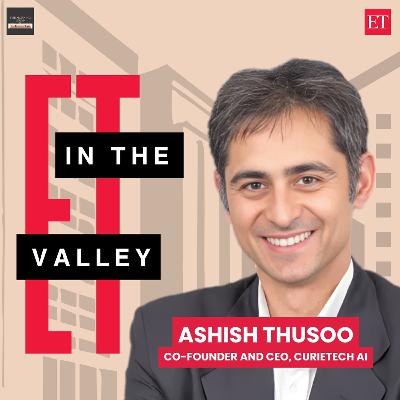


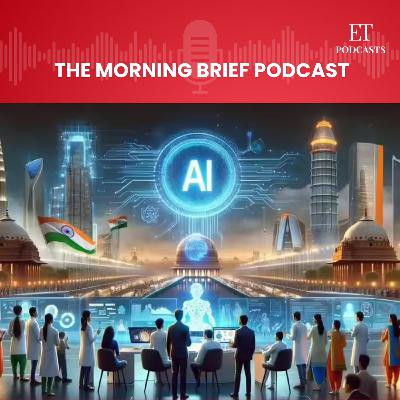
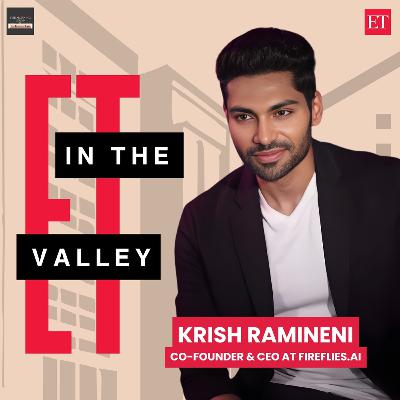
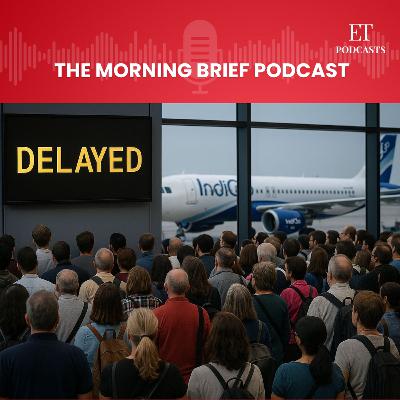


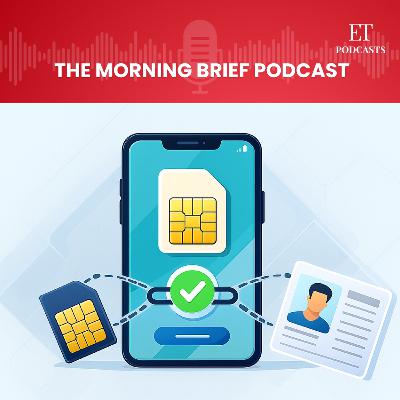
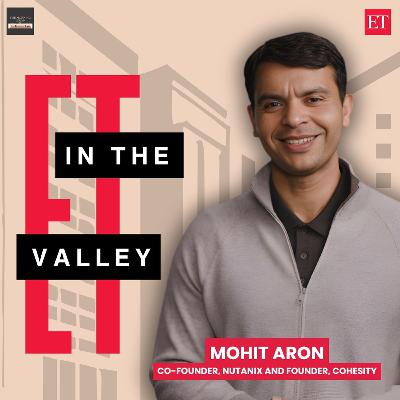
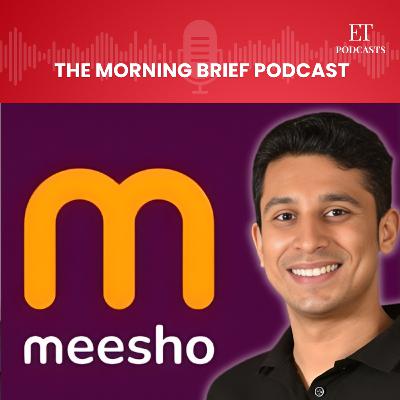

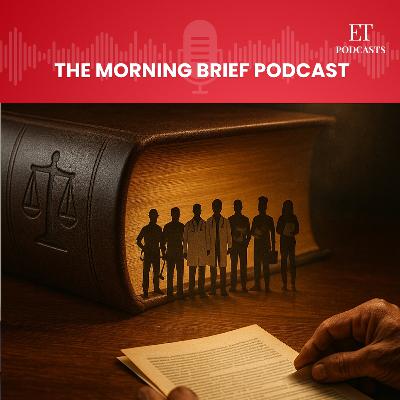
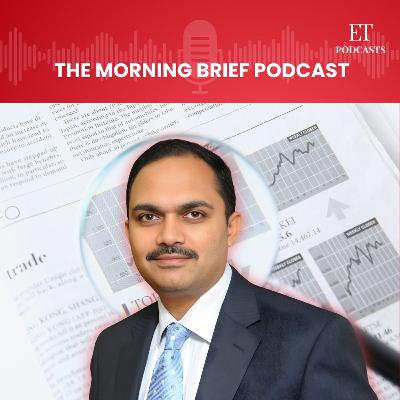
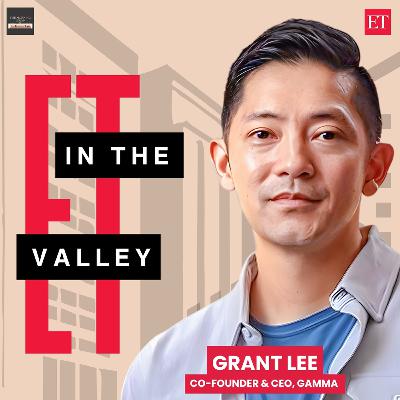



Nice Post. Looking for disability lawyers nearby? Find dedicated legal professionals specializing in Social Security Disability (SSD) and Supplemental Security Income (SSI) claims. They assist clients in navigating the application process, appeals, and hearings to secure benefits here https://lawfullinx.com/navigating-disability-lawyers-near-me-a-comprehensive-guide/. Connect with a local disability lawyer for expert guidance and advocacy.
🔴💚CLICK HERE Full HD✅720p✅1080p✅4K💚WATCH💚ᗪOᗯᑎᒪOᗩᗪ LINK 👉https://co.fastmovies.org
@22:30 everybody must listen to this example to stay safe from CyberCrime